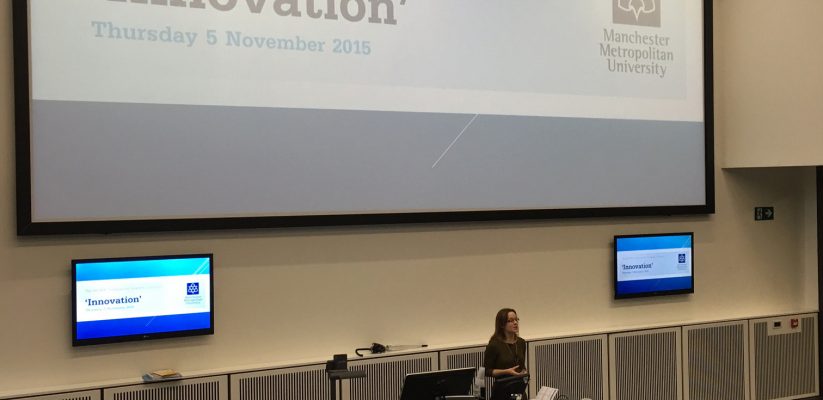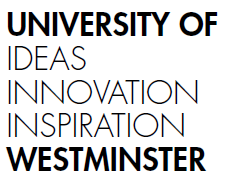On 5 November 2015, Westminster Business School took part in the 8th MMU Research Conference in Manchester. It was designed for postgraduate researchers, and there were academics presenting from various universities, both from England and other parts of the world.
The conference accepted delegates for oral presentations, poster presentations, performances and art displays and our PhD Marketing and Business Strategy student Lilit Baghdasaryan won one of the two prizes for best poster presentations.

As an undergraduate student it is always inspiring seeing our fellow students winning awards, but this time around I was really curious to speak to Lilit, after all I had never interviewed a young researcher before. I had to carry out some pieces of research for my course (International Marketing BA Honours), and if you are a student like me you know how daunting and laborious it can be. I hope after reading this interview you will change your mind regarding research.
During our chat she mentioned that there were around 50 posters, all from different disciplines, and she was the only researcher representing Westminster Business School at the conference. She told me that the criteria for choosing the best ones were the content of the poster, design, presentation and visual aids. That requires real talent! To make it even more challenging each poster had three main judges plus peer assessors. Can you imagine the pressure? I am so glad that young student researchers like Lilit have the confidence to face these challenges regardless of the outcome.


So without further ado, let’s get the interview started!
When did you begin your research project? Is it still on-going?
I started the PhD program in 2014 straight after completing my International Business Management MA at Westminster Business School. I am currently in my second year, where I am in the stage of active research and data collection. If everything goes according to plan I will finish the project by January 2018. My research objective is to investigate the reproduction of gender ideology through Russian consumer culture in relation to the iconography of ‘Mother’.
Why did you choose this particular topic? Could you tell us more about it?
My PhD topic is “Reproduction of Gender Ideology through Russian Consumer Culture: The Case of Iconography of the ‘Mother’ in Russia”. The topic emerged from my previous dissertation topic which was related to the “Marketing strategy for baby products in Armenia”, where I looked at cultural influence in consumption practice as well as the level of standardisation vs adaptation of Marketing Communications in ex-Soviet society. The more I researched, the more my interest increased towards consumer culture and the decision making process in relation to gender roles in a society.
Could you tell us more about it?
So the basic idea behind my topic is to understand consumer culture from a socio-historical point of view and determine how the established gender ideology within society circulates in Marketing Communications at large. The reason for concentrating my research on the Russian market is due to its rich and complex socio-historical background, the fact of several transitions within the political, economic and cultural systems and of course the influence of all the events on the transformation of gender ideology. One section of my project also looks at the influence of advertising on the construction of identity through critical feminist theory perspective. The expected results will uncover whether advertising agencies or companies are effectively implementing their strategies in accordance with the sociocultural image of a country and gender identities that represent mothers/motherhood.
How important it was for you to present your research in front of such an insightful audience?
First of all, I was very happy to be accepted to the conference, because as a young and less experienced researcher it is often very hard to be accepted to this type of event. It is always very encouraging when you learn that your topic is interesting and people want to know more about it. It gives some kind of inspiration and positive attitude that helps to move forward.
In your opinion what are the benefits that innovation can bring to research?
Well, at large, innovation is the driving mode of research. From my own point of view innovation in research means moving forward by not ignoring the past. Research itself is all about developing and coming up with something new.
What did you get out of the experience and what was the highlight in your opinion?
The experience was fantastic! It was a great event to meet other researchers and academics, look at other projects and gain more insights about my own project by just listening to comments and thoughts of people from other disciplines. The highlight of the day was probably when I received the prize for my poster presentation. I was very surprised and happy at the same time. It is a very effective confidence boosting exercise that I would recommend to any young researchers.
Some people see research as having a purely academic focus or even a bit geeky. Do you have any tips or advice to give to those people a bit uncertain about a career as a researcher?
Well, of course it has a large element of academic concentration; however it is not always purely academic. As I mentioned before, research is based on the past experience of others (or academically speaking… previous academic research) plus new insights and developments from newcomers. I think good research is the one that contributes not only to the ‘knowledge’ but also adds value to the society in general.
What would you say to young people considering a career as a researcher?
It is not an easy path, however If you have the potential, go for it and never give up. You may be the next genius that the world is waiting for.

I sincerely think that this was a massive achievement not only for Lilit, but for all Westminster Business School students. I would only add that all of us have the potential and it’s down to us to take the initiative and go after something big. We live in a very big world and innovation is certainly part of the university’s scope to provide us with an unforgettable student experience.
Below are some of the competitions that the University of Westminster is promoting:
Employability Resource Competition (win up to £1,500 in value)
Bright Spark Competition (win £200)
#lovefestive Photo Competition (win Amazon vouchers)


It was great to be with Lilit that day. Her research is very interesting and she well deserved her prize. Well done!
Congrats Lilit!